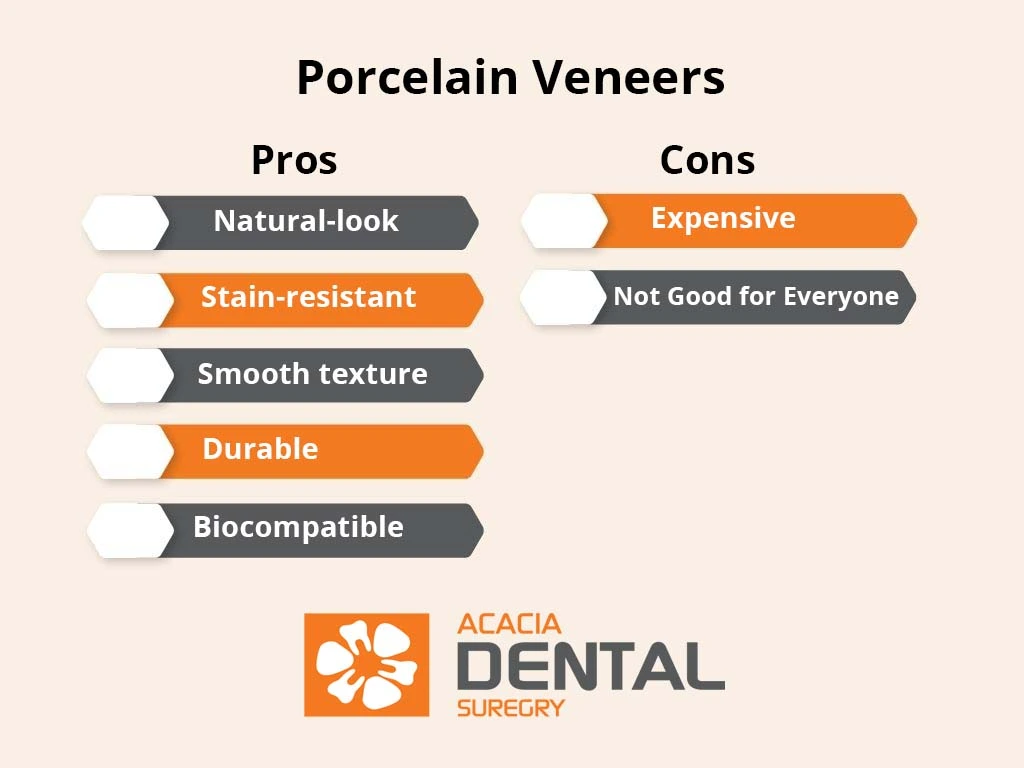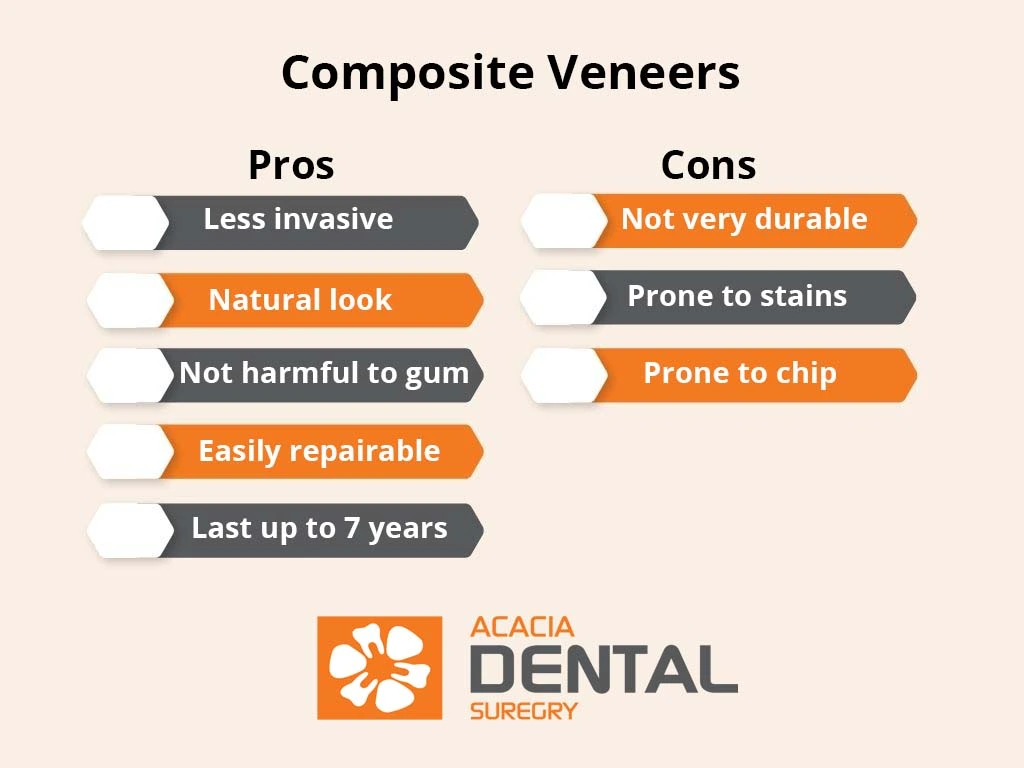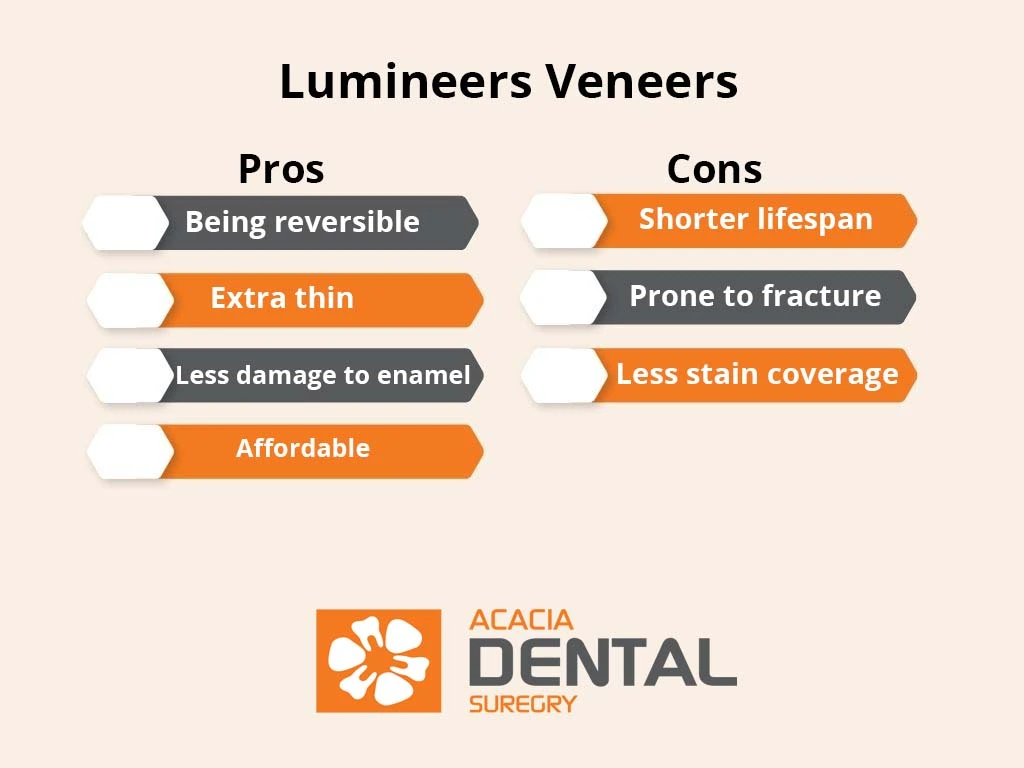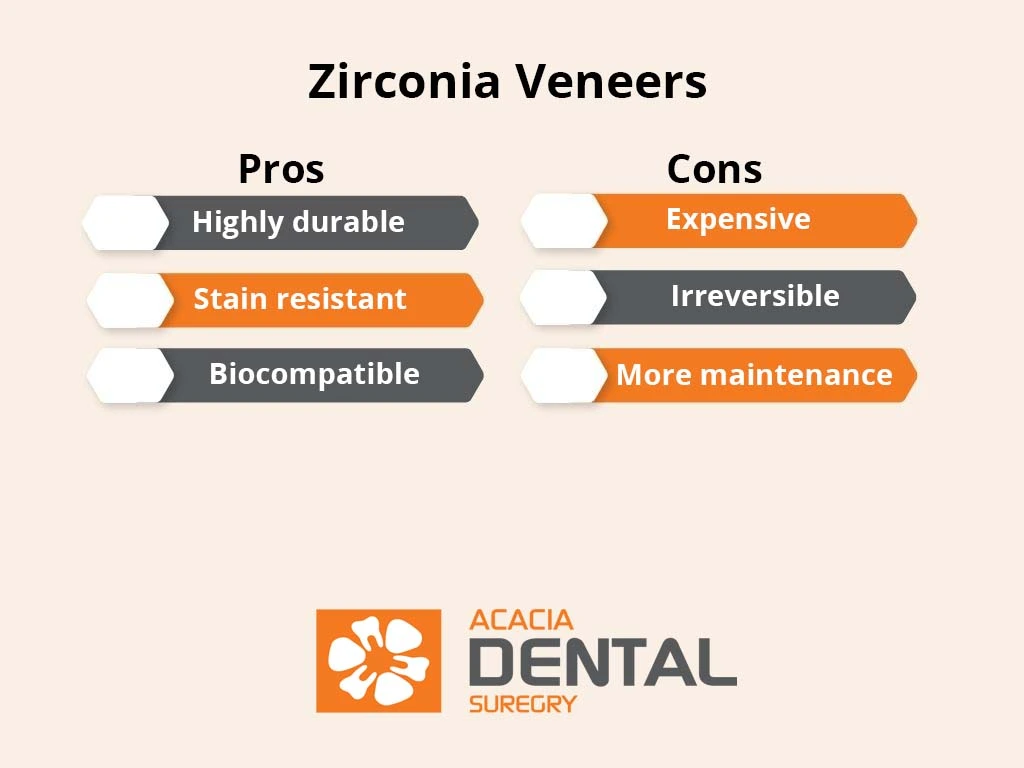Veneers are custom-made shells applied to the front of teeth to improve appearance. When considering this procedure, it’s essential to understand the different types of dental veneers and their pros and cons. Furthermore, it is recommended to read about the advantages and disadvantages of dental veneers to ensure you choose the most suitable dental procedure based on your condition.
In this article, we will explore the various types of dental veneers, including porcelain, composite, and Lumineers, and provide a guide to help you choose the right option for your needs.
5 Types of Dental Veneers
Let’s check out the common dental veneer materials:
1. Porcelain Veneers
Porcelain is one of the common materials used in cosmetic dentistry, which is known as laminate, too. Porcelain is very natural-looking and biocompatible. Therefore, it adds brightness to your smile without injuring gum tissue. Furthermore, porcelain laminate veneers are very durable and can last up to 20 years. However, they still require good maintenance. So, it is essential to follow your dental care routine after the procedure.

Porcelain Veneers Pros
- Natural-look
- Stain-resistant
- Smooth texture
- Durable (lasts between 10 to 20 years if taken care of properly)
- Biocompatible (it doesn’t injure the gum tissue)
Porcelain Veneers Cons
- Expensive
- Not a good solution for people with grinding teeth
2. Composite Veneers
The other material used for veneer is a mixture of resin and composite, known as composite resin veneers. This type of veneer is both organic and inorganic and is bonded to the front teeth with the same tooth-colored material used in dental fillings.
The strength and durability of composite veneers are the same as porcelain. However, composite is less expensive than porcelain, but at the same time, its lifespan is less, too. While porcelain can last up to 20 years, the lifespan of composite veneers is up to 7 years.

Composite Veneers Pros
- Less invasive than other veneer procedures (Less enamel is removed)
- Natural-look
- Not harmful to gum tissue
- Easily repairable
- Last up to 5 to 7 years in case of taken care of properly
Composite Veneers Cons
- Not as durable as porcelain veneers
- Prone to stains
- Prone to chip or break
3. Lumineers Veneers
Generally, Lumineers is not a material, it’s a brand. The material of this type of veneer is the same as porcelain but it’s ultra-thin so less enamel is removed compared to the porcelain veneer procedure. Like other veneer types, Lumineers are used to cover tooth discoloration or irregular shape.
Since this material is very thin, no one can recognize you have veneers. Therefore, its natural appearance is exceptional.

Lumineers Veneers Pros
- Being reversible
- Extra thin and natural
- Less damage to natural tooth structure
- Less expensive than porcelain veneers
Lumineers Veneers Cons
- Shorter lifespan than other veneer types
- Prone to fracture or break
- Less coverage over natural tooth discoloration
4. Zirconia Veneers
Zirconia veneers are a type of dental veneers that are made of zirconium oxide, a ceramic material that is very strong and durable. This type of dental veneer can improve the appearance of teeth that are discolored, chipped, misshapen, or have gaps between them.
They are expertly crafted to perfectly match your natural teeth’ shape, size, and color, resulting in a remarkably realistic look. Furthermore, this material is very compatible with the body and will not cause any allergic reactions.

Zirconia Veneers Pros
- Highly durable to cracks or wear and tear
- Stain resistant
- Biocompatible
Zirconia Veneers Cons
- Expensive
- Irreversible
- Requires more maintenance than other types of veneers
5. Removable Veneers
Generally, veneers are permanent. However, as the name indicates, removable veneers are considered a temporary solution before getting the permanent veneers. There are various types of removable veneers available from different companies and brands. They are designed to bond to the front teeth for a temporary time. Although removable veneers seem to be a more affordable and quick way to enhance the beauty of the smile, they may last only for one day. Therefore, it is not a great option to make a beautiful smile.

Removable Veneers Pros
- No preparation is required
- Cost-effective and more affordable than other veneers
- Quick method to enhance the brightness of teeth
Removable Veneers Cons
- Not permanent
- Prone to plaque build-up
- Not as natural as other types of veneers
What Are the Differences Between Lumineers and Other Types of Veneers?
Lumineers and veneers are both cosmetic dental treatments used to improve the appearance of teeth, but there are some key differences between the two:
- Lumineers are thinner than traditional veneers, typically about 0.2mm, whereas veneers are usually about 0.5mm thick.
- Lumineers require less preparation than traditional veneers.
- Because less enamel is removed during the placement of Lumineers, they are often considered reversible, meaning they can be removed without causing significant damage to the natural tooth.
- Veneers are generally considered to be more durable and long-lasting compared to Lumineers.
What Is the Best Dental Veneer Material?
When contemplating a dental veneer procedure, selecting the appropriate material is crucial. However, the best dental veneer material depends on your personal preferences, budget, and dental needs. Although porcelain veneers are more expensive than other types of dental veneers, they are mostly preferred due to their durability and high quality.
For a less expensive option, Lumineers and composite veneers work well. They have a lower life span than porcelain; they still have a natural look and can enhance the brightness and aesthetic of the teeth.
Bottom Line
Dental veneers are one of the options that people with discolored, chipped, or broken teeth can choose. There are different types of dental veneers that people can choose based on their preferences and budget. Furthermore, veneers come in different colors to fit the color of natural teeth. However, no matter which type of veneer you choose, it is not usually a reversible procedure because, during the procedure, a small layer of tooth enamel is removed, which adds to tooth sensitivity.
Therefore, if you consider getting this procedure, it is recommended to consult with your dentist and check out what other options you have. For example, if the tooth discoloration is mild, the teeth whitening procedure can be a perfect alternative to dental veneer.
